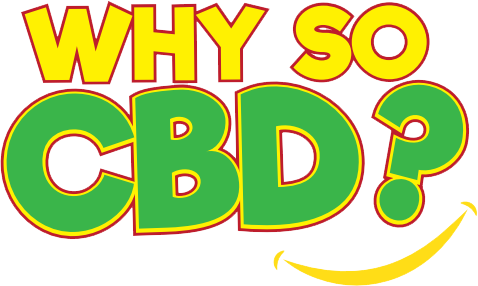In recent years, the wellness industry has seen a surge in the use of natural remedies, with cannabis and CBD emerging as popular choices. While both offer health benefits, CBD has gained significant attention as a safer and more versatile alternative to cannabis. With its non-psychoactive properties and growing body of research, CBD is proving to be the superior choice for those seeking wellness and relief.
In this blog, we will explore the advantages of CBD over cannabis, discussing its therapeutic benefits, legal status, and suitability for daily use. Along the way, we’ll provide useful insights on how to incorporate CBD into your lifestyle and naturally link to related topics for a more comprehensive understanding.

Understanding CBD and Cannabis: What Sets Them Apart?
The Basics of CBD and Cannabis
Cannabis refers to a group of plants, including Cannabis sativa, Cannabis indica, and Cannabis ruderalis. It contains numerous compounds, but the two most well-known are tetrahydrocannabinol (THC) and cannabidiol (CBD).
- THC is the psychoactive compound responsible for the "high" associated with cannabis.
- CBD, on the other hand, is non-psychoactive and offers therapeutic benefits without altering mental clarity.
While CBD can be extracted from cannabis plants, most commercial CBD products are derived from hemp, a variety of cannabis with low THC content.
Key Differences Between CBD and Cannabis
| Aspect | CBD | Cannabis |
|---|---|---|
| Psychoactive? | No | Yes (due to THC content) |
| Legal Status | Legal in many countries | Often restricted or illegal |
| Daily Use | Suitable | Limited due to psychoactivity |
| Health Benefits | Broad therapeutic potential | Effective but with side effects |
The Benefits of CBD for Wellness and Relief
CBD has become a cornerstone of natural wellness due to its wide-ranging benefits, all without the risks associated with cannabis use.
1. CBD Supports Mental Clarity and Focus
Unlike cannabis, which can impair cognitive function, CBD promotes mental clarity. Studies suggest that CBD interacts with receptors in the brain, helping to regulate stress and improve focus. For those managing demanding schedules, CBD can offer a natural solution.
Related blog: Learn more about how CBD can help you stay focused and manage stress in high-pressure situations, such as back-to-back meetings. Read here.
2. CBD Offers a Non-Addictive Solution for Pain Relief
Chronic pain sufferers often turn to cannabis for relief, but the THC content can lead to dependency. CBD, by contrast, offers effective pain management without the risk of addiction.
Its anti-inflammatory properties make it particularly useful for conditions such as arthritis, migraines, and muscle recovery after exercise.
3. Promotes Better Sleep Without Psychoactive Effects
Cannabis can help with sleep issues, but the high THC content often leaves users groggy the next day. CBD offers a better alternative by improving sleep quality without any lingering side effects.

CBD Is Legal and Accessible
One of the most significant advantages of CBD over cannabis is its legal status. While cannabis laws vary widely across countries, CBD is legal in the UK and many other regions, provided it contains less than 0.2% THC.
This legal clarity makes CBD products more accessible to consumers, allowing them to enjoy the benefits without concerns about breaking the law.
Incorporating CBD Into Your Daily Routine
CBD’s versatility makes it easy to incorporate into various aspects of your wellness routine.
1. Enhancing Your Self-Care Rituals
CBD can elevate your self-care routines, from skincare to relaxation practices. Its anti-inflammatory and soothing properties make it an excellent addition to facial oils, bath bombs, and massage treatments.
Related blog: Discover 10 unique ways to enhance your self-care routine with CBD oil. Read here.
2. CBD Edibles for a Healthier Lifestyle
CBD-infused gummies, teas, and snacks offer a discreet way to enjoy its benefits throughout the day. Unlike cannabis edibles, which can produce unpredictable highs, CBD edibles provide consistent effects.
Addressing Misconceptions About Cannabis and CBD
1. CBD Is Not Addictive
One common misconception is that CBD, like cannabis, can lead to dependency. However, research has shown that CBD does not cause addiction and may even help in managing withdrawal symptoms from other substances.
2. CBD Provides Benefits Without Intoxication
While cannabis can hinder productivity and impair judgment due to its psychoactive effects, CBD allows users to experience relief without compromising their mental state.
Scientific Backing: CBD’s Proven Benefits
Numerous studies support CBD’s effectiveness in managing various conditions, from anxiety to epilepsy. The World Health Organization (WHO) has even acknowledged CBD as a safe and well-tolerated substance with no potential for abuse.
Some key findings include:
- Pain Relief: A 2020 study highlighted CBD’s ability to reduce chronic pain by targeting inflammatory markers.
- Anxiety Reduction: Research from 2019 found that CBD significantly reduced anxiety in participants during public speaking tests.
- Seizure Management: The FDA has approved a CBD-based medication, Epidiolex, for treating severe epilepsy.
Why CBD Is the Future of Wellness

As wellness trends evolve, CBD is emerging as the preferred choice for those seeking natural remedies. Its safety profile, legal status, and broad therapeutic potential make it a standout option compared to cannabis.
Whether you’re looking to manage stress, improve sleep, or enhance your overall quality of life, CBD offers a reliable and effective solution.
CBD’s non-psychoactive properties, accessibility, and proven health benefits position it as a superior alternative to cannabis for wellness and relief. Unlike cannabis, CBD provides a clear-headed approach to managing stress, pain, and other conditions, making it suitable for daily use.
For those looking to embrace the benefits of CBD, incorporating it into your routine can transform your approach to self-care and wellness.
